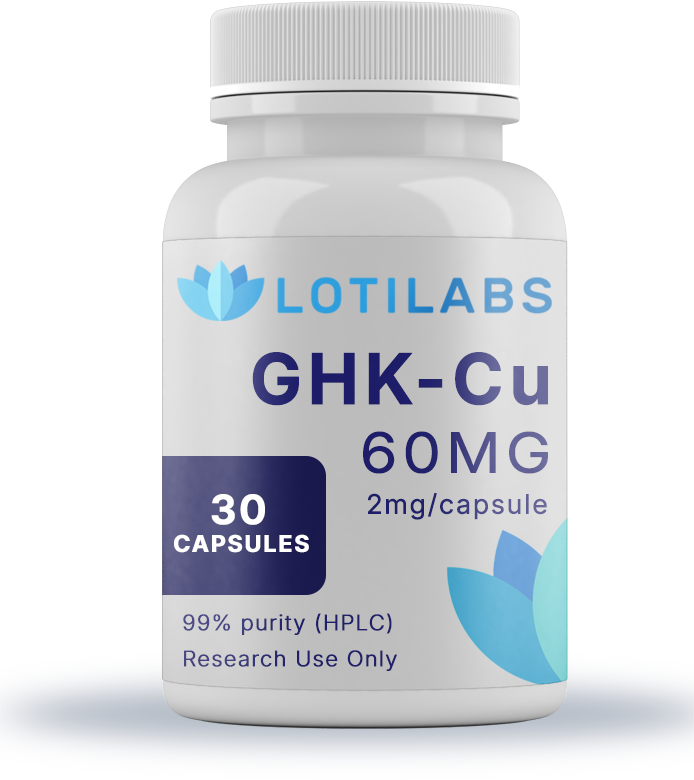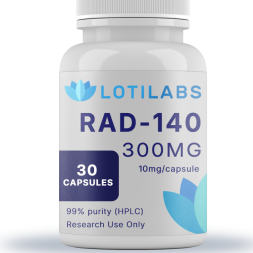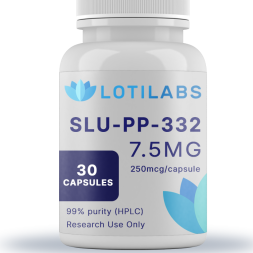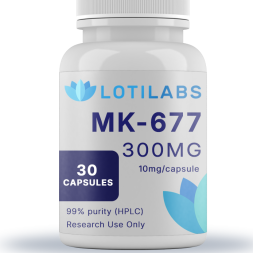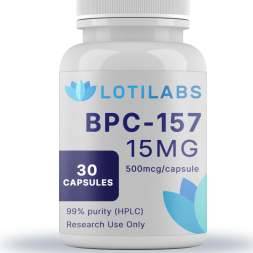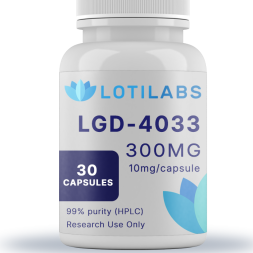GHK-Cu 60mg (2mg/capsule, 30 capsules)
$59.99
You save
Capsules are for laboratory, research, analytical, and measurement purposes only. Capsules offer a protective barrier between sensitive chemical compounds and environmental elements, such as moisture. Not for human consumption or veterinary use.
195 in stock

Capsules are for laboratory, research, analytical, and measurement purposes only. Capsules offer a protective barrier between sensitive chemical compounds and environmental elements, such as moisture. Not for human consumption or veterinary use.
Buy GHK Cu Capsules for Research
Introduction to GHK-Cu
GHK-Cu, or copper peptide, represents one of the most fascinating compounds in biological research today. This naturally occurring human tri-peptide consists of three amino acids—glycine, histidine, and lysine—complexed with copper. GHK-Cu belongs to the broader class of peptides and copper peptides, and is sometimes referred to as GHK copper or GHK Cu copper. Research suggests that GHK-Cu plays a significant role in numerous biological processes related to tissue repair, skin biology, and maintaining skin health. GHK-Cu is also available in supplement form and is studied alongside other peptides for its wide-ranging biological effects.
The concentration of this copper tripeptide naturally decreases with age, with levels typically dropping to approximately 60% of youthful levels by age 60. This decrease coincides with various age-related changes in skin appearance and function, sparking significant scientific interest in the compound’s potential applications.
Studies suggest that GHK-Cu demonstrates remarkable versatility in biological settings, with potential implications for skin health, hair growth, and cognitive health. Research has explored its anti-inflammatory properties and ability to promote nerve outgrowth in laboratory conditions. The scientific community continues to investigate GHK-Cu’s regenerative properties and their significance in various research contexts. Ongoing research also examines the potential benefits and potential side effects of GHK-Cu and other supplements, highlighting the importance of understanding both their therapeutic promise and safety profiles.
Research suggests that GHK-Cu exhibits multiple biological effects worthy of scientific investigation. Laboratory studies indicate that this copper peptide may influence the production of collagen, potentially supporting skin elasticity and helping to tighten loose skin in experimental models.
In hair-related research, studies have observed that GHK-Cu may affect processes involving the hormone dihydrotestosterone (DHT), which is associated with certain types of hair loss. The compound appears to support conditions favorable to hair follicles in research settings.
The antioxidant effects of GHK-Cu have been documented in scientific literature, showing potential protective actions against damage caused by lipid peroxidation. These antioxidant properties appear to support the body’s antioxidant defense systems and antioxidant enzymes in laboratory conditions.
Studies suggest that GHK-Cu demonstrates anti inflammatory response capabilities by potentially modulating pro inflammatory cytokines. This anti-inflammatory activity makes it an intriguing subject for tissue regeneration research, as inflammation often plays a crucial role in tissue remodeling processes.
Neurological research has identified potential neuroprotective properties of GHK-Cu. Studies suggest it may influence factors related to amyloid beta, a protein associated with cognitive decline in certain conditions. This has led to ongoing investigations into its potential relevance to brain health, memory loss, and neurodegenerative disorders such as Alzheimer’s disease. While GHK-Cu shows promise in supporting brain health and reducing memory loss in the context of Alzheimer’s disease research, it’s important to note that this research remains in preliminary stages.
How GHK-Cu Works
The mechanisms through which GHK-Cu functions involve its remarkable influence on gene expression. Research suggests that this copper tripeptide may affect approximately 4,000 human genes, many associated with tissue repair and regenerative functions. GHK-Cu’s regenerative actions include activating regenerative and protective genes, which contribute to tissue repair, collagen synthesis, and wound healing by enhancing cellular repair processes and increasing copper transport to damaged areas.
Studies indicate that GHK-Cu stimulates the production of various growth factors, including vascular endothelial growth factor (VEGF). These growth factor proteins play critical roles in tissue maintenance, with VEGF specifically supporting the development of blood vessels in experimental settings. The compound’s apparent ability to promote wound healing properties has been documented in multiple laboratory investigations.
GHK-Cu’s antioxidant effects appear to protect tissues from oxidative damage by neutralizing free radicals. This mechanism is particularly relevant to aged skin models, where oxidative stress contributes to various observed changes. Research suggests the peptide may help reduce cell death associated with oxidative challenges in laboratory conditions.
The compound’s anti-inflammatory activities involve several pathways, including the modulation of proteolytic enzymes and reduction of inflammation markers in experimental settings. These effects potentially contribute to tissue remodeling processes observed in research.
The peptide’s influence on stem cells has also been noted in scientific literature. Studies suggest that GHK-Cu may create environments conducive to stem cell activity, which has significant implications for tissue regeneration research. Its apparent ability to stimulate collagen synthesis offers intriguing possibilities for studies on skin elasticity and overall appearance in various experimental models. In the context of skincare, GHK-Cu is valued for supporting skin rejuvenation, anti-aging effects, and improving skin health through enhanced collagen and elastin production.
GHK-Cu and Copper Tripeptide
GHK-Cu, widely recognized as a copper tripeptide, is a naturally occurring peptide complex that plays a pivotal role in maintaining skin health and supporting tissue repair. This unique compound, composed of glycine, histidine, and lysine bound to copper, is found in human plasma and tissues, where it contributes to a range of biological processes essential for skin vitality and overall health.
One of the most notable actions of GHK-Cu is its ability to stimulate the production of vascular endothelial growth factor (VEGF). VEGF is a critical growth factor that drives the formation of new blood vessels, a process known as angiogenesis. This function is especially important in wound healing, as the development of new blood vessels ensures that oxygen and nutrients reach regenerating tissues, supporting efficient tissue repair and recovery.
In the realm of hair growth, GHK-Cu peptide has demonstrated promising effects by modulating the activity of the hormone dihydrotestosterone (DHT). DHT is known to contribute to hair loss, particularly in androgenetic alopecia. Research indicates that GHK-Cu may help block the negative effects of DHT on hair follicles, thereby creating a more favorable environment for hair growth and follicle health.
A key feature of GHK-Cu is its influence on gene expression. Studies have shown that this copper peptide can modulate the activity of thousands of human genes, many of which are involved in skin health, tissue regeneration, and the body’s natural anti-aging processes. By supporting the expression of genes related to collagen and elastin production, GHK-Cu helps maintain skin elasticity and firmness, reducing the visible signs of aging and contributing to a more youthful overall appearance.
GHK-Cu is also valued for its potent antioxidant and anti-inflammatory properties. By enhancing the activity of antioxidant enzymes, this peptide helps protect skin and tissues from oxidative stress caused by free radicals. Its anti-inflammatory effects further contribute to reducing inflammation, which is a key factor in both skin aging and various degenerative conditions.
The copper peptide’s ability to stimulate the synthesis of collagen and elastin is central to its role in maintaining skin elasticity and supporting the structural integrity of the skin. These proteins are essential for keeping skin firm and resilient, and their production naturally declines with age. GHK-Cu’s action in this area makes it a valuable subject of research in anti-aging and skin rejuvenation studies.
In addition to its effects on skin and hair, GHK-Cu has demonstrated a significant role in wound healing. It promotes the production of growth factors and encourages the migration of cells to sites of injury, accelerating the tissue repair process and supporting the body’s natural healing mechanisms.
Research has also highlighted GHK-Cu’s protective effects on stem cells, which are vital for tissue regeneration and repair. By creating an environment that supports stem cell function, GHK-Cu may enhance the body’s ability to regenerate damaged tissues and maintain overall skin health.
Another important aspect of GHK-Cu’s biological activity is its positive influence on DNA repair genes. By supporting the expression of these genes, GHK-Cu helps protect skin cells from damage caused by UV radiation and other environmental stressors, contributing to long-term skin health and resilience.
Beyond its dermatological benefits, GHK-Cu supplement research has explored its potential to support cognitive health. The peptide’s ability to reduce inflammation and promote the production of antioxidant enzymes may help protect brain cells from oxidative damage, supporting cognitive function and potentially mitigating the effects of aging on the nervous system.
In summary, GHK-Cu and its copper tripeptide form offer a multifaceted approach to supporting skin health, hair growth, tissue repair, and cognitive health. Its unique combination of growth factor stimulation, gene expression modulation, antioxidant defense, and anti-inflammatory response makes it a compelling subject for ongoing research in the fields of skin biology, tissue regeneration, and beyond.
Buying GHK-Cu
When looking to buy GHK-Cu for research purposes, several important considerations can help ensure the acquisition of high-quality materials. First and foremost, researchers should seek products containing high-purity GHK-Cu peptide from reputable suppliers with established quality control processes. GHK-Cu is available as a supplement and is often compared with other supplements, such as amino acids and copper peptides, in research settings.
The formulation’s bioavailability represents another key consideration. Some research suggests that certain delivery methods may protect the peptide from degradation by stomach acid, potentially preserving its structural integrity for experimental applications. Some formulations include sodium bicarbonate to buffer stomach acidity and enhance the absorption of GHK-Cu. Products developed specifically for research often address these technical challenges.
Many researchers prefer GHK-Cu products manufactured in facilities that follow Good Manufacturing Practices (GMP), as these standards help ensure batch-to-batch consistency—a crucial factor for experimental reproducibility. Third-party testing documentation provides additional verification of product composition and purity.
For those interested in GHK’s regenerative potential, it’s important to understand that research on this compound remains ongoing. While studies suggest numerous biological effects, from influencing DNA repair genes to supporting the nervous system, these findings should be interpreted within their appropriate research context. Users should be aware of potential side effects when using GHK-Cu supplements and consult with healthcare professionals as needed.
The proper storage of GHK-Cu is essential for maintaining its stability. Most research-grade products require specific storage conditions to preserve their molecular integrity. Quality suppliers typically provide detailed storage instructions with their products. It is also important to follow the recommended daily dosage for GHK-Cu supplements to ensure safety and efficacy.
When evaluating where to buy GHK-Cu, researchers often consider:
- Product purity certifications
- Manufacturing standards
- Technical support availability
- Storage and handling recommendations
- Documentation of composition analysis
It’s important to note that suppliers cannot make therapeutic claims about GHK-Cu products, as these would require specific regulatory approvals. The compound’s potential applications in areas such as skin rejuvenation, hair growth, and conditions like rheumatoid arthritis remain subjects of ongoing scientific investigation.
For those specifically interested in GHK-Cu’s significance in skin health research, Loti Labs offers research-grade products suitable for scientific investigation. Their formulations are designed with attention to stability and purity—critical factors for meaningful research outcomes.
Conclusion
GHK-Cu represents a fascinating area of scientific inquiry with expanding research applications. This copper tripeptide’s apparent influence on numerous biological processes—from gene expression to tissue repair—continues to attract significant scientific interest.
As research progresses, our understanding of GHK-Cu’s mechanisms and potential continues to evolve. The compound’s apparent effects on collagen production, inflammation, and oxidative stress make it particularly relevant to skin biology research, while its potential neurological implications open intriguing avenues for cognitive health investigations.
For researchers seeking high-quality GHK-Cu capsules, prioritizing product purity, formulation stability, and manufacturing standards can help ensure reliable experimental materials. As with any research compound, maintaining appropriate scientific context and experimental design remains essential when investigating this remarkable peptide.
The story of GHK-Cu continues to unfold through rigorous scientific inquiry, adding new chapters to our understanding of this intriguing copper peptide and its biological significance.
References
- Pickart, L. GHK and copper: From discovery to wound healing. Regenerative Medicine. 2010.
- Hong, F., et al. Identification of GHK as a bioactive substance that reverses gene expression in metastatic colorectal cancer. Broad Institute Connectivity Map. 2010.
- Campbell, A., et al. GHK peptide reverses gene expression signature of chronic obstructive pulmonary disease. American Journal of Respiratory Cell and Molecular Biology. 2012.
- Maibach, H. I., et al. Transdermal absorption of GHK-Cu peptide. University of California at San Francisco. 2001.
- Sensenbrenner, M., et al. GHK induces neuronal growth in chick embryonic neurons. Experimental Cell Research. 1975.
- Pickart, L., et al. The role of GHK-Cu in skin biology and wound healing. Journal of Dermatological Science. 2015.
- Supersmart. GHK-Cu Tripeptide benefits and effects. Supersmart.com.
- Limitless Life Nootropics. GHK-Cu Capsules product information. Limitlesslifenootropics.com.
- Pharma Lab Global. GHK-Cu Peptide Capsules. Pharmalabglobal.com.
- LvL Up Health. Liposomal GHK-Cu formulation details. LvLuphealth.com.
- National Center for Biotechnology Information. PMC5332963: GHK and neurodegeneration research. Pmc.ncbi.nlm.nih.gov.
| Weight | .06250 lbs |
|---|
